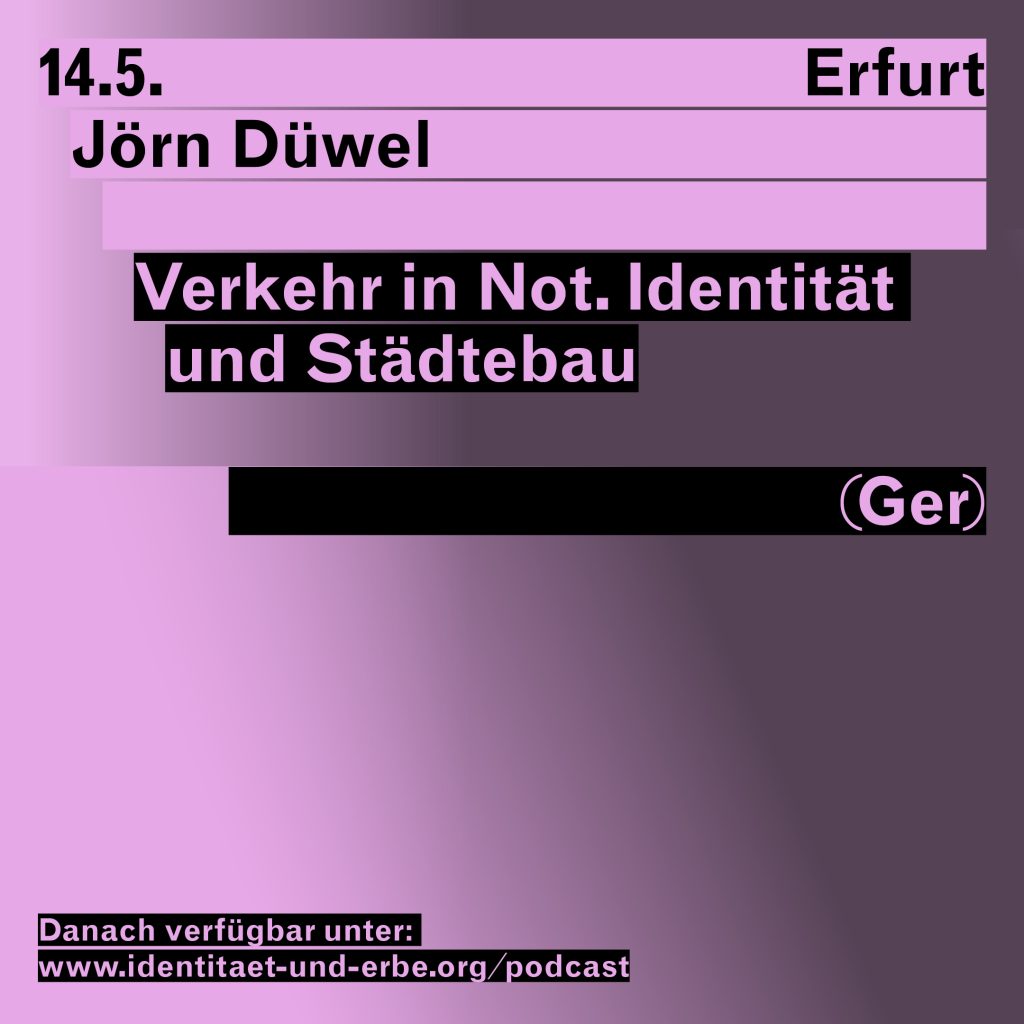Jörn Düwel: Traffic in trouble. (GER)
From the start, there has been a conflict between the automobile and the city, not least with regard to the city as heritage and the identity associated with it. Initially, hopes and expectations towards the new means of transport and the unrestricted mobility it promised, prevailed and it seemed only logical to provide the space it required.
Yet even before large quantities of motor vehicles conquered the streets in the 1920s, there were fears of “traffic misery”. In order to avert it, urban planners demanded to replace the old, winding urban fabric and its narrow streets with a modern city. Radical designs were presented and – due to the destruction caused by the Second World War – finally came to be within reach. In the mid-fifties, the Berlin Senate mocked pedestrians as “incorrigible Neanderthals” who did not belong on the street but in the nearest park. The memento mori of a Hamburg architect, who warned against “destroying our cities in favour of such a reactionary piece of furniture as the car”, was cast aside.
For decades, the only solution to the traffic crisis seemed to be the expansion of roads. It was only when the finite nature of resources was recognized that there was a change in mentality, albeit without any significant consequences. Naturally, the traditional heritage and a historically grown identity of cities have been invoked again. Since the nineties, a transformation of the transport sector has regularly been postulated, but to this day it is hardly reflected in the streets. The libidinous relationship to the car, which is by no means only perceived as a threat but also as a symbol for freedom, is still largely ignored.
Jörn Düwel studied art history and German studies in Greifswald. In the last two decades, he has been teaching history and theory of Architecture in Hamburg, where he also lives. Düwel has written numerous books on the history of recent architecture and urban planning in Europe.
University of Applied Sciences Erfurt
Schlüterstraße 1, Auditorium (3rd floor)
Start: 18.30
